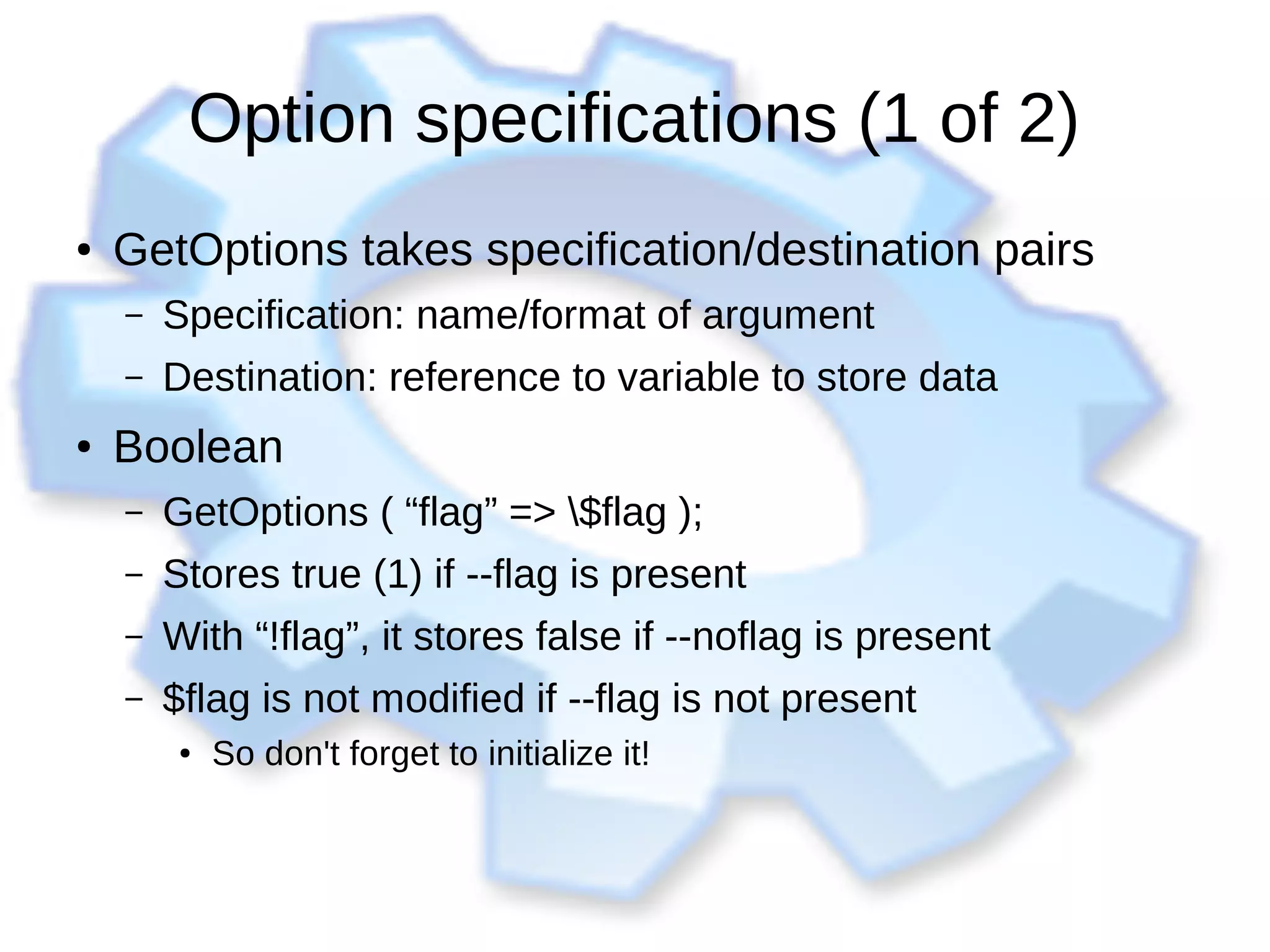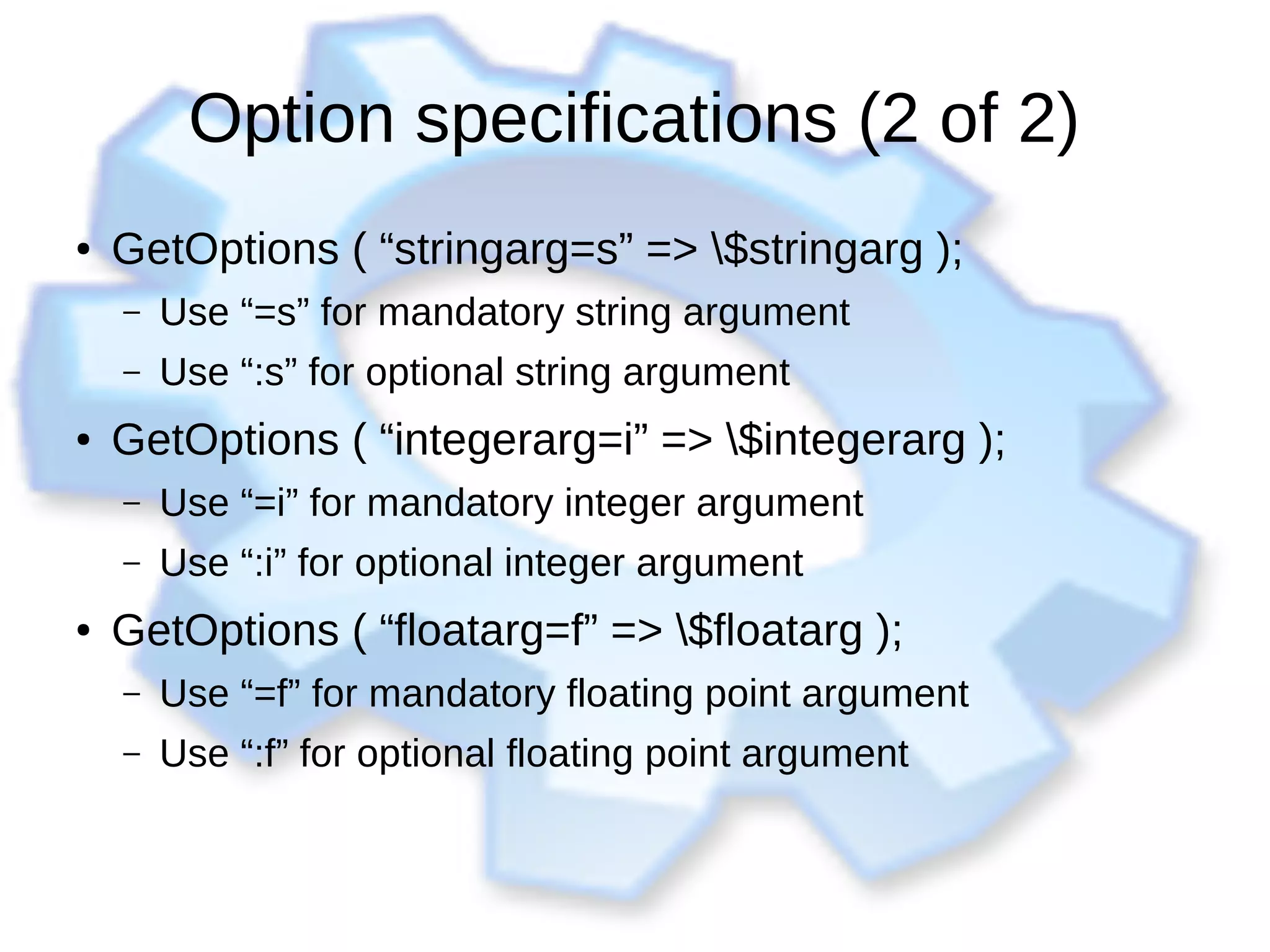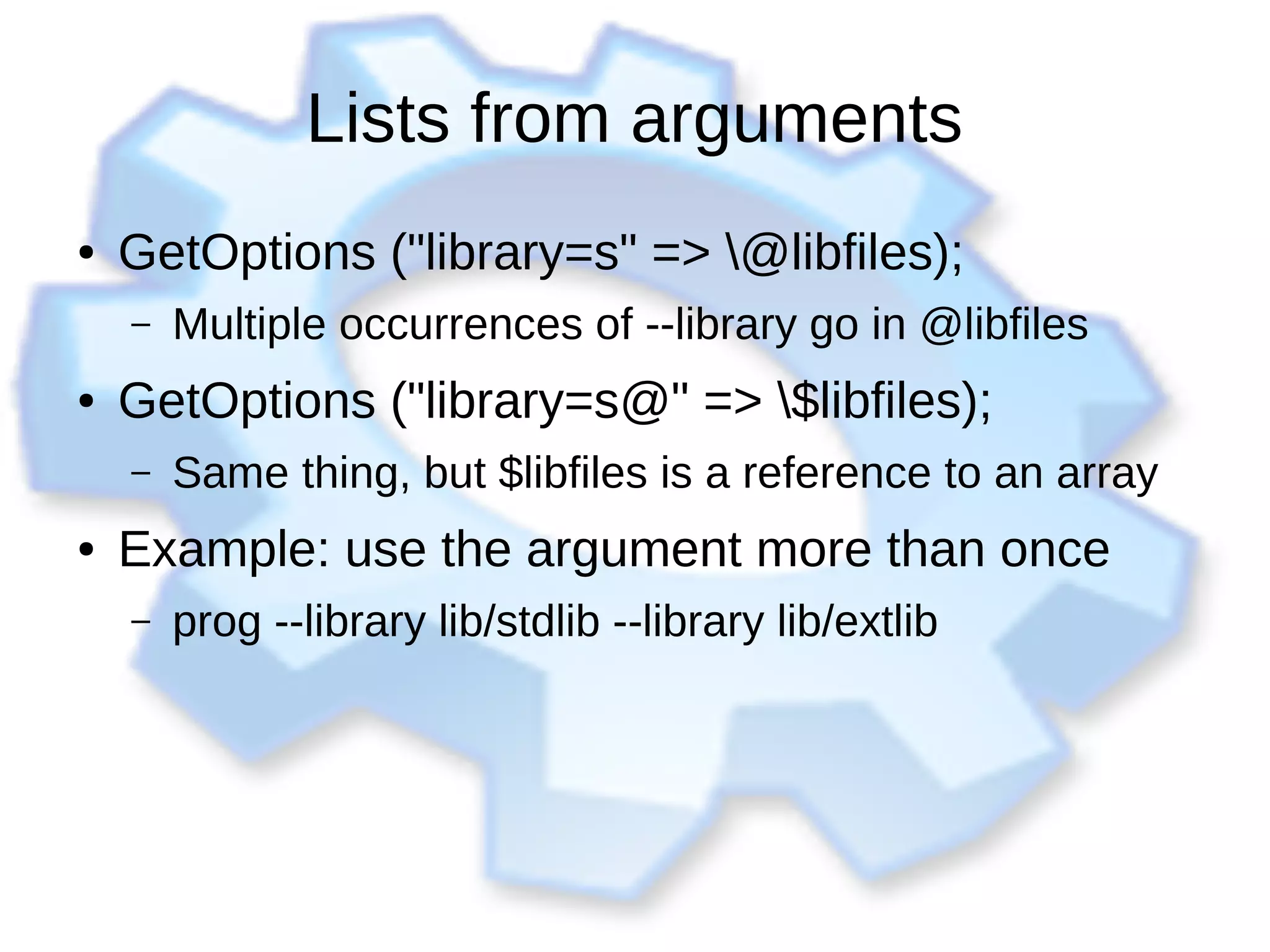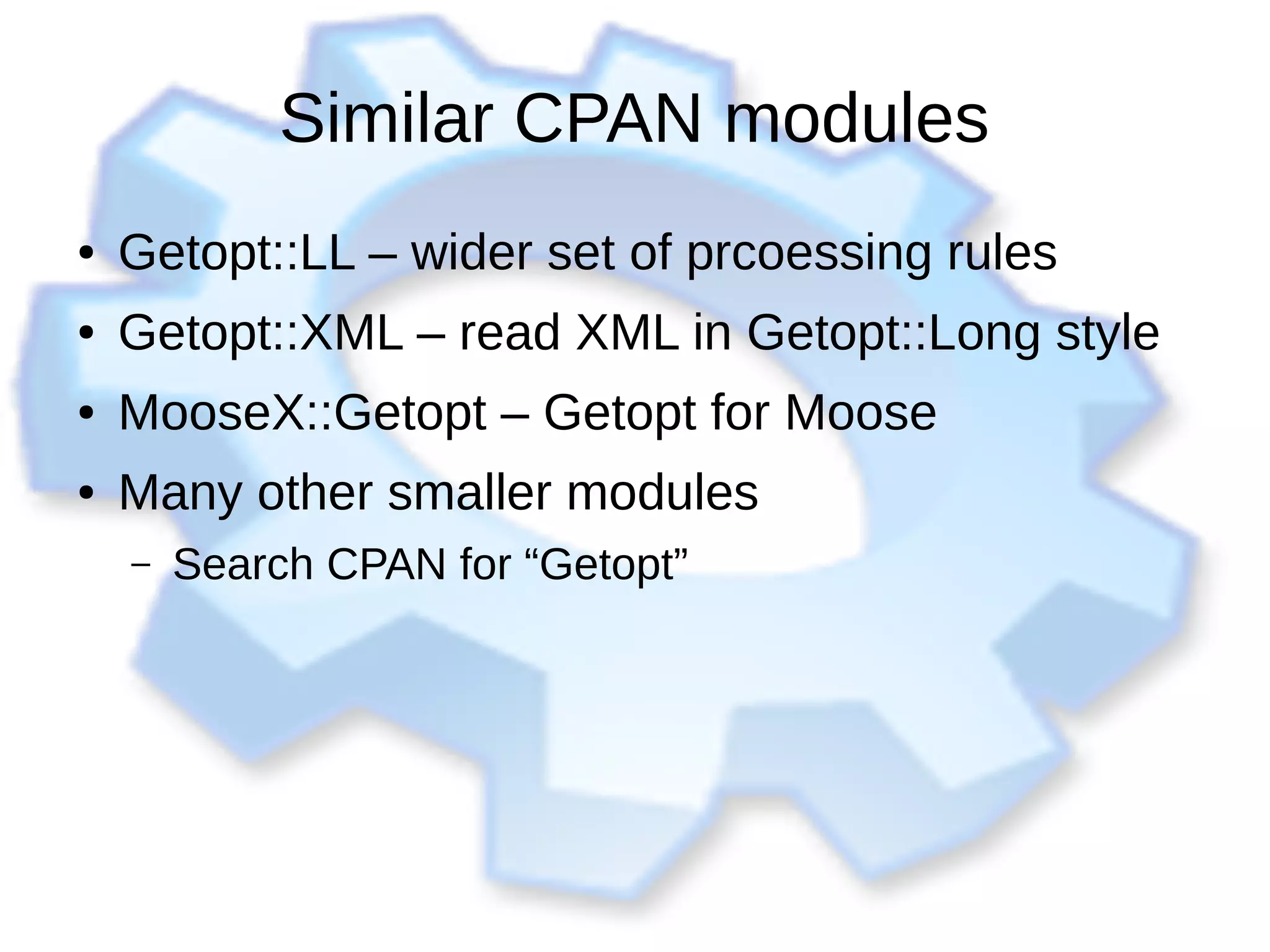The document discusses the usage of the `Getopt::Long` module in Perl for processing command-line arguments, emphasizing its importance for standard compliance and automated tools. It details the function `GetOptions`, which allows for various argument types including boolean, string, integer, and floating point, along with examples of how to use them. Additionally, it mentions related modules available on CPAN for enhanced functionality in command-line processing.








